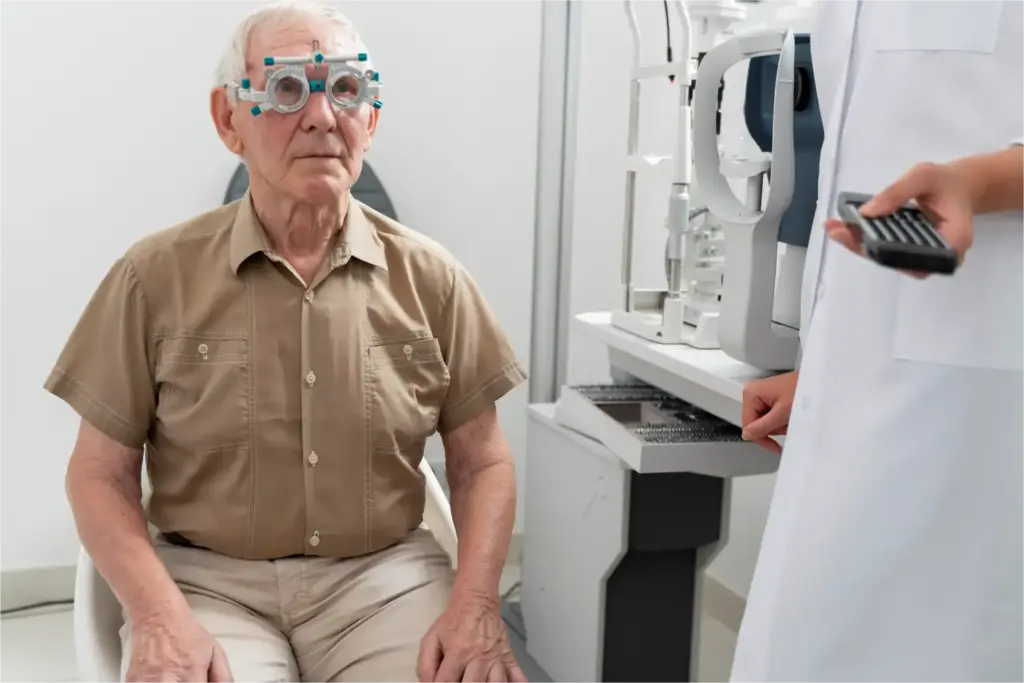
Eye tests and Alzheimer’s: Routine eye exams could one day help doctors detect early warning signs of Alzheimer’s disease and other dementias, long before symptoms appear, according to new research.
The study, published in the journal Alzheimer’s & Dementia, found that abnormal changes in the blood vessels of the retina may mirror similar problems in the brain, especially in individuals carrying a common genetic mutation linked to higher dementia risk. Researchers at The Jackson Laboratory (JAX) in Maine reported that the findings strengthen the case for using the retina as a biomarker for early detection of neurodegenerative disease.
Also Read | Women with Alzheimer’s found to have lower omega fatty acid levels
“If an optometrist or ophthalmologist sees unusual vascular changes in the retina, it could reflect what is happening in the brain,” said neuroscientist Alaina Reagan, who led the study with Gareth Howell, professor and chair for Glaucoma Research at JAX.
Because the retina is part of the central nervous system and shares similar cell types with the brain, scientists believe it can provide an accessible window into brain health. The team studied mice carrying the MTHFR677C>T mutation, found in up to 40% of people, and observed twisted and narrowed blood vessels in their retinas as early as six months of age. Such changes resemble alterations in the brain linked to poor blood flow and cognitive decline.
The researchers also identified disruptions in protein activity and energy production in both the brain and retina, suggesting a systemic link between vascular health and neurodegeneration. Female mice appeared particularly vulnerable, showing greater vessel loss and damage with age, echoing patterns seen in human dementia rates.
The team is now working with clinicians at Northern Light Acadia Hospital in Maine to explore whether similar retinal changes can be detected in people and used as part of regular eye exams. If validated, the approach could allow doctors to identify dementia risk decades earlier than current methods.
“Most people over 50 undergo annual vision checks,” Reagan said. “If vascular changes in the retina can reveal increased dementia risk, it could give doctors a critical window, up to 20 years, to intervene before cognitive decline begins.”








